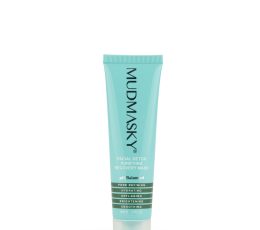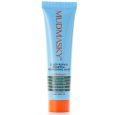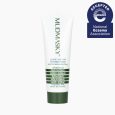Unilever expresses surprise and disappointment regarding the investigation initiated by the UK’s Competition and Markets Authority (CMA) into the company’s green claims. The CMA believes that Unilever may be overstating the environmental friendliness of certain products through the use of what it considers “vague and broad” claims. The initial review by the authority revealed several concerns, including ambiguous statements and language that could potentially mislead consumers, exaggeration of natural ingredient claims, and unclear recyclability assertions.
The investigation also raised issues about Unilever’s use of colors and imagery that might create a false impression of a product’s environmental friendliness. While the CMA did not specify brands, it mentioned concerns about essential items such as detergent, kitchen spray, and toiletries. If further investigation uncovers evidence of greenwashing and Unilever does not alter its practices, legal action may be pursued. Unilever refutes the allegations, emphasizing its commitment to transparent and responsible claims, participation in environmental initiatives like the UK Plastics Pact, and cooperation with the CMA’s requests for information. This investigation is part of a broader CMA inquiry into greenwashing within the FMCG sector, with potential actions against other companies in the future. The European Union is also addressing greenwashing through new rules to prohibit misleading environmental advertisements. Despite recent criticism from Greenpeace International, a study by Planet Tracker suggests that Unilever has outperformed competitors in meeting climate transition goals, particularly in addressing Scope 3 emissions.
The CMA’s investigation into Unilever’s green claims is a significant development in the ongoing scrutiny of environmental marketing practices. Unilever, a global FMCG giant, is facing allegations of potentially misleading consumers with vague claims about the environmental attributes of its products. The investigation is part of a broader effort by regulatory bodies to combat greenwashing and ensure that companies accurately represent their environmental efforts.
Unilever’s response, expressing surprise and disappointment, emphasizes the company’s commitment to responsible claims, transparency, and participation in environmental initiatives. The use of the On-Pack Recycling Label (OPRL) and Unilever’s role as a founding signatory of the UK Plastics Pact are highlighted as evidence of its dedication to sustainable practices.
However, the CMA remains vigilant, emphasizing its concern that consumers might be misled by products labeled as “green” that do not align with their environmental claims. The authority has the power to take legal action against Unilever if further investigations reveal evidence of greenwashing.
This investigation reflects a broader trend, with both the UK and the European Union taking steps to crack down on misleading environmental claims. The EU’s provisional agreement to ban deceptive ‘green’ ads aligns with the growing demand for transparency in corporate sustainability efforts.
Despite the recent criticism from environmental groups, Unilever’s performance in meeting climate transition goals has been acknowledged in a study by Planet Tracker. This complexity underscores the multifaceted nature of corporate sustainability evaluations and the challenges faced by companies operating in an increasingly scrutinized landscape.
As the investigation unfolds, it will likely prompt increased scrutiny of environmental claims across the FMCG sector. Companies should take note of these developments, ensuring that their marketing practices align with their environmental commitments and comply with evolving regulatory standards. The outcome of this investigation will set a precedent for how regulators address greenwashing, influencing the approach taken by other companies in the sector.





